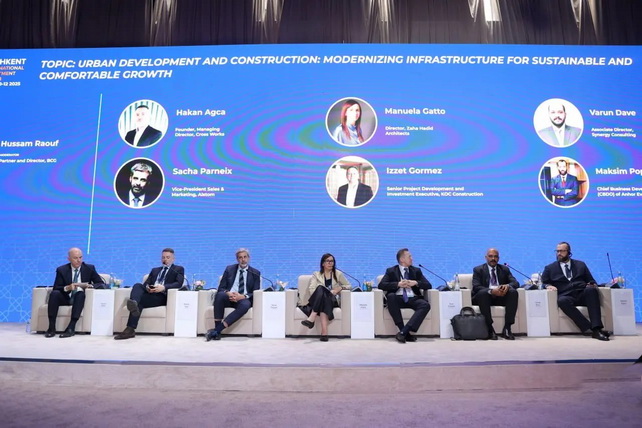
Uzbekistan and Germany Explore New Horizons of Investment Cooperation at Tashkent Forum
Uzbekistan and Germany Explore New Horizons of Investment Cooperation at Tashkent Forum
Tashkent, Uzbekistan (UzDaily.com) — On the final day of the Tashkent International Investment Forum, organized under the coordination of the Ministry of Investment, Industry and Trade of the Republic of Uzbekistan, a roundtable was held with the support of the Uzbekistan-Germany Investors and Entrepreneurs Council.
Participants discussed the dynamic development of bilateral economic cooperation, outlined new prospects for mutually beneficial partnerships, and explored opportunities to expand trade and implement promising joint projects.
Abdulla Khursanov, Chairman of the Board of Almalyk Mining and Metallurgical Complex (AGMK), highlighted the completion of the company’s third copper concentrator as part of its long-term development strategy through 2030. He noted that German partners are actively involved in this project, supplying equipment and advanced technological solutions.
Olaf Schmidt, Head of International Mining at Schachtbau Nordhausen GmbH, emphasized that the global mining sector, especially in Central Asia, is increasingly aligning with international standards. He stressed the importance of modernization and cutting-edge technologies to ensure competitiveness on the global market.
Ekaterina Galitsyna, Director of Business Development at KfW IPEX-Bank, presented a new financial instrument launched by the German government in 2024 to support projects focused on critical raw materials. Managed by KfW, the fund allows for potential investments ranging from €50 million to €100 million in initiatives involving German or European companies.
Bahodir Alimov, Managing Director of the Transformation Office and Head of the NBU Representative Office in the UAE, highlighted Uzbekistan’s significant investment potential in renewable energy. He also pointed to agribusiness, IT, and tourism as key sectors for attracting foreign partners. Alimov underscored the country’s strategic geographic location:
“Uzbekistan lies at the heart of the Silk Road, offering tremendous opportunities to develop cross-border logistics corridors, including railways and highways.”
During the session, participants exchanged views, answered questions, and discussed priority areas requiring further development to strengthen bilateral cooperation. Special attention was given to overcoming administrative barriers that may still hinder the implementation of joint initiatives.